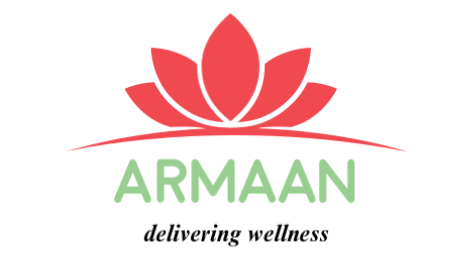Breast Cancer Awareness: Early Detection, Better Protection
October is Breast Cancer Awareness Month, a time to remind ourselves and our loved ones that early detection can save lives. Breast cancer is one of the most common cancers affecting women globally, but with regular self-examinations and healthy lifestyle habits, it is possible to detect it early and take charge of your health.
Breast cancer patients are always encouraged to adopt healthier lifestyle and eating habits before, during and after treatment to enhance long-term survival and quality of life.
How to Perform a Breast Self-Examination
Self-examinations are simple, quick and can be done at home. Here’s how:
Look: Stand in front of a mirror with your shoulders straight and hands on your hips. Look for any changes in the shape, size or color of your breasts.
Raise Your Arms: Lift your arms and check if you notice any dimpling, puckering or changes in the skin texture.
Check for Fluid: See if any fluid (watery, milky or yellow) is coming from the nipples.
Feel While Standing or Sitting: Use the pads of your fingers to move around your entire breast in circular motions, from the outer area toward the nipple.
Feel While Lying Down: When lying down, the breast tissue spreads out evenly, making it easier to detect any unusual lumps or thickened areas.
Performing this simple self-exam once a month can make a huge difference. If you notice anything unusual, do not panic, but do reach out to your healthcare provider for a professional check-up.
Breast Cancer Statistics and Awareness
Breast cancer affects 1 in 8 women during their lifetime. According to the World Health Organization, it remains the most common cancer among women globally, accounting for about 25% of all cancer cases in women.
While early detection greatly improves survival rates, awareness and regular check-ups are still the first line of defense.
Remember, Men Can Get It Too
Though rare, men can also develop breast cancer. It accounts for less than 1% of all breast cancer cases, but the lack of awareness often leads to late diagnosis. Men should also be alert to changes such as lumps, nipple discharge or skin dimpling on the chest area.
Supporting Your Body Naturally
Alongside regular check-ups, maintaining a strong immune system and supporting your overall wellbeing can play an important role in prevention and recovery. Armaan Limited offers a range of great supplements that can help support your health.
Foods and supplements that may offer benefits include:
Graviola: Known for its immune-supporting and antioxidant properties, Graviola helps the body defend against cellular stress. Some studies have demonstrated anticancer effects of the plant in breast cancer (De Cicco et al. 2019).
Chlorophyll: A natural detoxifier that supports blood health and helps oxygenate the body, promoting cellular balance.
Spirulina: Rich in vitamins, minerals and antioxidants, Spirulina helps strengthen the immune system and reduce oxidative stress.
Curcumin: Curcumin, the active compound in turmeric, is known for its strong anti-inflammatory and antioxidant benefits.
Diindolymethame (DIM): Supports healthy hormone balance, particularly estrogen metabolism, which is crucial in breast health.
Garlic: Garlic has long been valued for its immune-boosting and detoxifying effects, helping the body maintain resilience.
Breast cancer awareness is about more than just wearing pink, it is about taking proactive steps for your health and encouraging those around you to do the same. Perform your self-exam monthly, schedule your medical screenings and nourish your body with natural, health-boosting foods and supplements.
References
https://www.komen.org/breast-cancer/risk-factor/understanding-risks/
Asghari, A., Fazilati, M., Latifi, A. M., Salavati, H., & Choopani, A. (2016). A review on antioxidant properties of Spirulina. Journal of Applied Biotechnology Reports, 3(1)
Ranjani R. Anticancer properties of blue green algae Spirulina platensis - A Review. International Journal of Medicine and Pharmaceutical Sciences 2013; 3(4): 159- 168)
Kushi, Lawrence H., et al. "American Cancer Society Guidelines on nutrition and physical activity for cancer prevention: reducing the risk of cancer with healthy food choices and physical activity." CA: a cancer journal for clinicians 62.1 (2012): 30-67.
Khan, Z., Bhadouria, P., & Bisen, P. S. (2005). Nutritional and therapeutic potential of Spirulina. Current pharmaceutical biotechnology, 6(5), 373-379.
Naksuriya, O., Okonogi, S., Schiffelers, R. M., & Hennink, W. E. (2014). Curcumin nanoformulations: a review of pharmaceutical properties and preclinical studies and clinical data related to cancer treatment. Biomaterials, 35(10), 3365-3383.
De Cicco, P., Catani, M. V., Gasperi, V., Sibilano, M., Quaglietta, M., & Savini, I. (2019). Nutrition and breast cancer: a literature review on prevention, treatment and recurrence. Nutrients, 11(7), 1514. https://doi.org/10.3390/nu11071514

